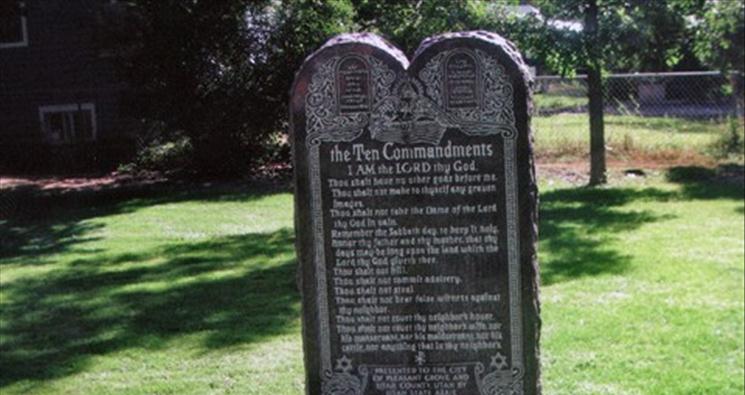Here We Go Again: Summum v. Pleasant Grove
Over two years ago, in Pleasant Grove City v. Summum, the ACLJ obtained a unanimous victory in the U.S. Supreme Court allowing a city to display a donated Ten Commandments monument in a public park without having to display any and all donated monuments, donated by any and all private groups.
The lawsuit was brought by Summum, a religious organization founded in 1975 and headquartered in Salt Lake City, Utah. In the Summum decision, the Supreme Court unequivocally rejected Summum’s First Amendment free speech claim that because the City was publicly displaying a Ten Commandments monument donated by the Fraternal Order of Eagles it had to display the group’s “Seven Aphorisms” monument as well. The Court wrote that when it comes to displaying monuments on public lands — a historical practice of governments since time immemorial — the government is the speaker and has the right to “speak for itself,” “say what it wishes,” and “select the views it wants to express.”
After the U.S. Supreme Court rejected its free speech claim, Summum amended its complaint and argued instead that Pleasant Grove had violated the federal establishment clause. The U.S. District Court in Utah dismissed Summum’s newly minted claim, writing that “there is no evidence that anyone in Pleasant Grove government had any idea what Summum’s religious beliefs were, and thus it cannot be said that the Pleasant Grove government demonstrated a preference for one religion over another.”
Almost one year after losing its federal establishment clause claim in federal court, Summum has filed suit yet again. This time, Summum has turned to Utah state court, alleging that Pleasant Grove violated the Utah State Constitution in not allowing Summum to display its private monument. The ACLJ will once again represent Pleasant Grove City. While the Utah state establishment clause is different in content than the federal establishment clause, we believe Summum’s state claim will ultimately fail. Contrary to the allegations in Summum’s new complaint, Pleasant Grove City has not impermissibly discriminated against Summum and its monument. The criteria consistently followed by the City to help determine whether to accept and display a donated monument does not allow city officials to consider the religious tenets or beliefs of the donor.
In the end, we believe the Utah Courts will follow the lead of the U.S. Supreme Court and hold that Pleasant Grove City is free to display its own Ten Commandments monument without having to display every monument, donated by any group.
Our responses to Summum’s motions for preliminary relief and summary judgment are due on December 23, 2011. We will keep you posted as the case progresses.
